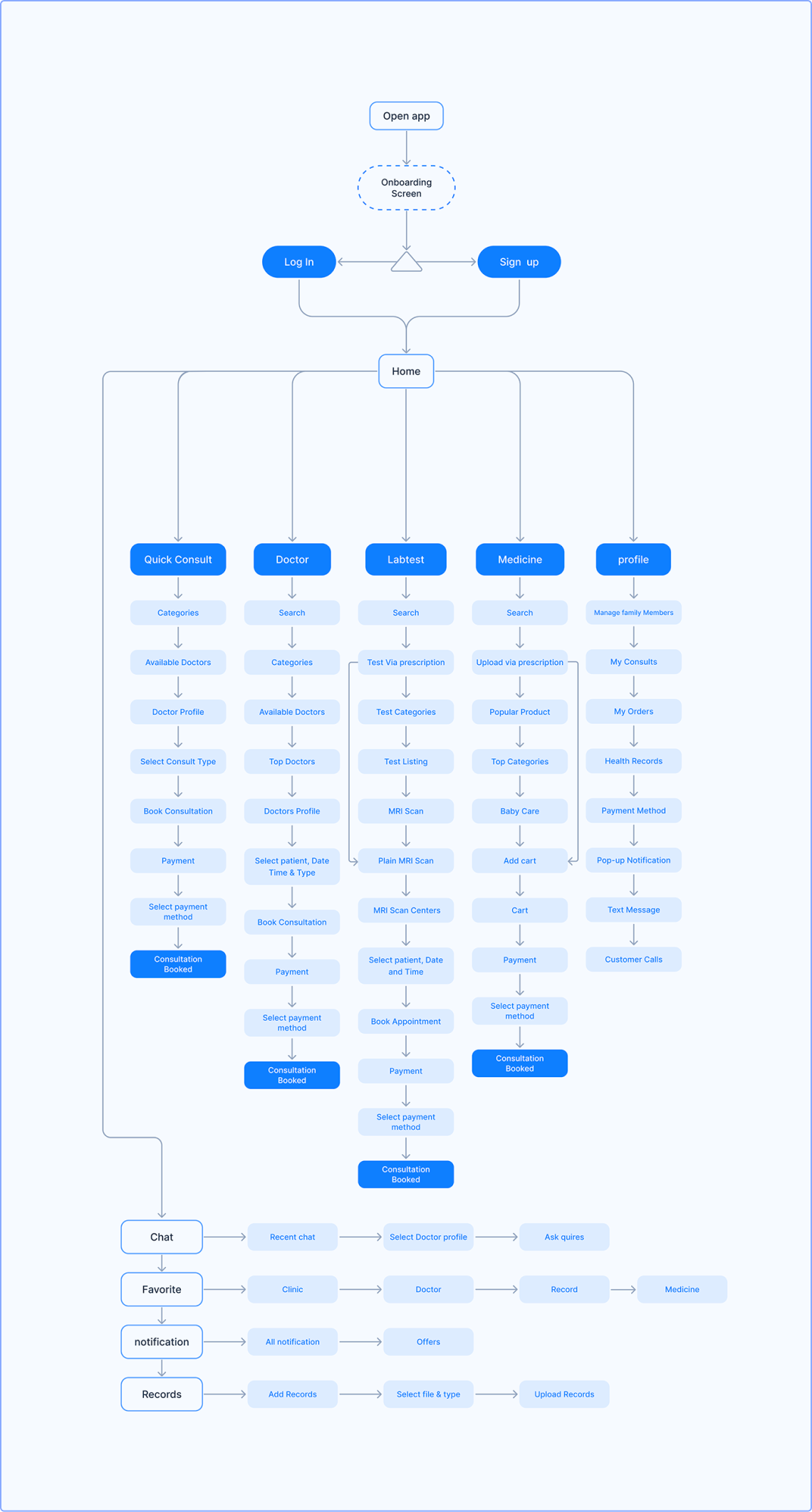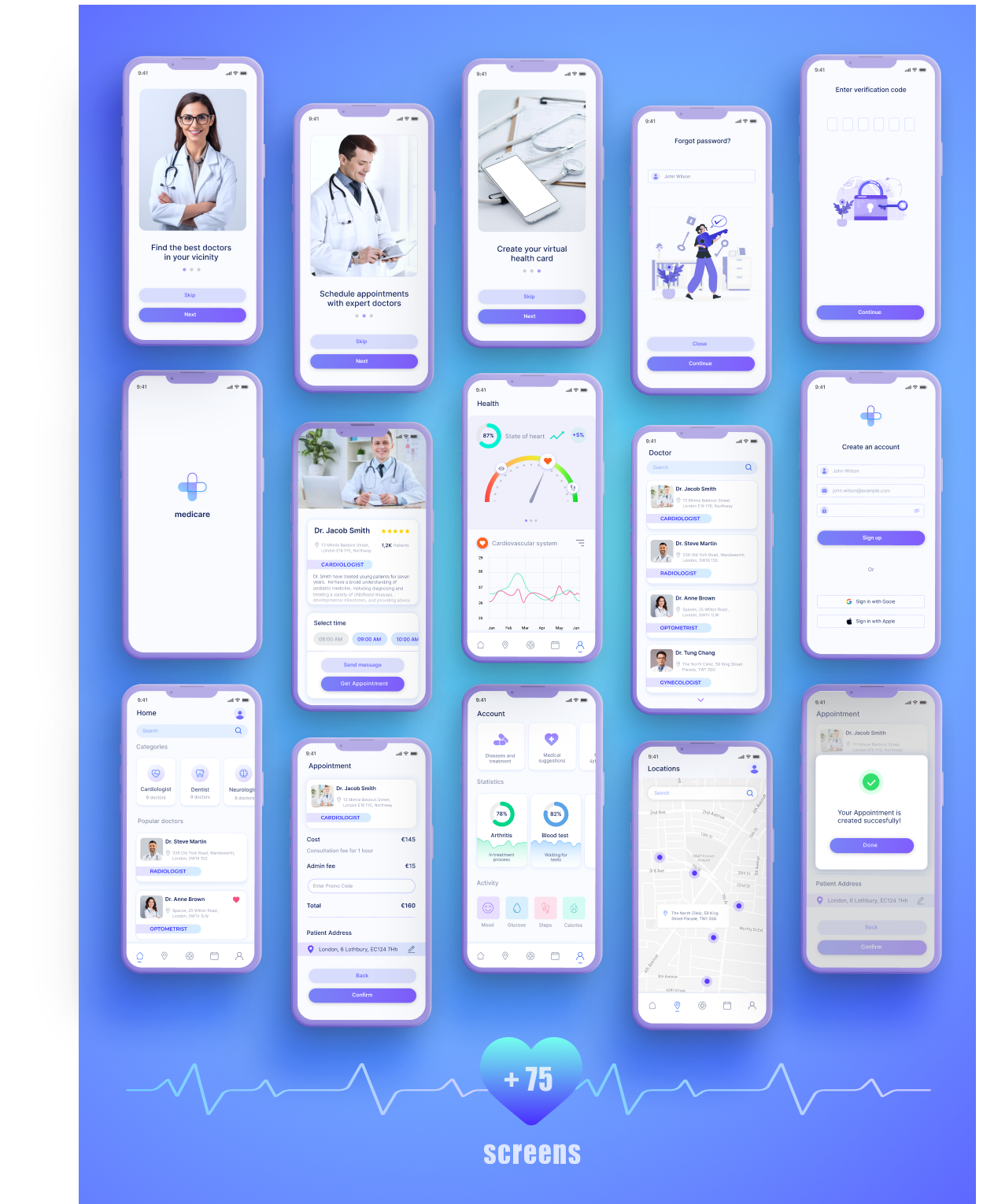

Sector: Healthcare
My Role: Product designer
Project time: 6 months
MEDICARE is designed with a patient-centric approach, offers several privileges and advantages to users. Patients can securely access their medical records, including test results, medication lists, treatment plans, and appointment schedules, directly from their mobile devices. This access empowers patients to stay informed about their health status and actively participate in their care. Patients can schedule, reschedule, or cancel appointments with healthcare providers conveniently through the app. z
The Problem
This page is Amazing
People who want to take care of their health but don’t have time to get medical appointments face several challenges, including:
- Busy work schedules, family responsibilities, and personal commitments make it difficult to find time for traditional healthcare appointments.
- Clinics and hospitals often operate within limited hours that may not align with their availability.
- The process of booking appointments and waiting for available slots can be time-consuming.
- Long wait times at clinics or hospitals further discourage people from seeking care.
- Limited access to nearby healthcare facilities or specialists.
- Difficulty in finding trusted healthcare providers quickly.
- Worry about worsening conditions due to delayed or skipped check-ups.
- Anxiety about missing early diagnosis for potential health issues.
Competitive Analysis
Factor analysis helped me identify gaps in the market and opportunities for differentiation, which ultimately led to the design and development of a more competitive health monitoring application with a large user database, user-friendly and intuitive interface.
Challanges
#1. As the user base grows and technology evolves, ensuring the scalability and long-term maintenance of the app becomes increasingly important
#2. Encouraging sustained user engagement and facilitating behavior change are significant challenges for the app
#3. Conducting rigorous validation studies to demonstrate the app's efficacy and safety may be necessary
Opportunities
#1. Incorporating AI and machine learning algorithms into health monitoring apps can enable personalised health recommendations, early detection of health issues, predictive analytics and improve the accuracy of health assessments
#2. Future opportunities lie in developing features tailored to specific chronic diseases, such as medication reminders, symptom tracking, and lifestyle recommendations
#3. Opportunities lie in standardising data formats, implementing interoperability standards (e.g., FHIR), and facilitating secure data sharing between different healthcare stakeholders
Building empathy
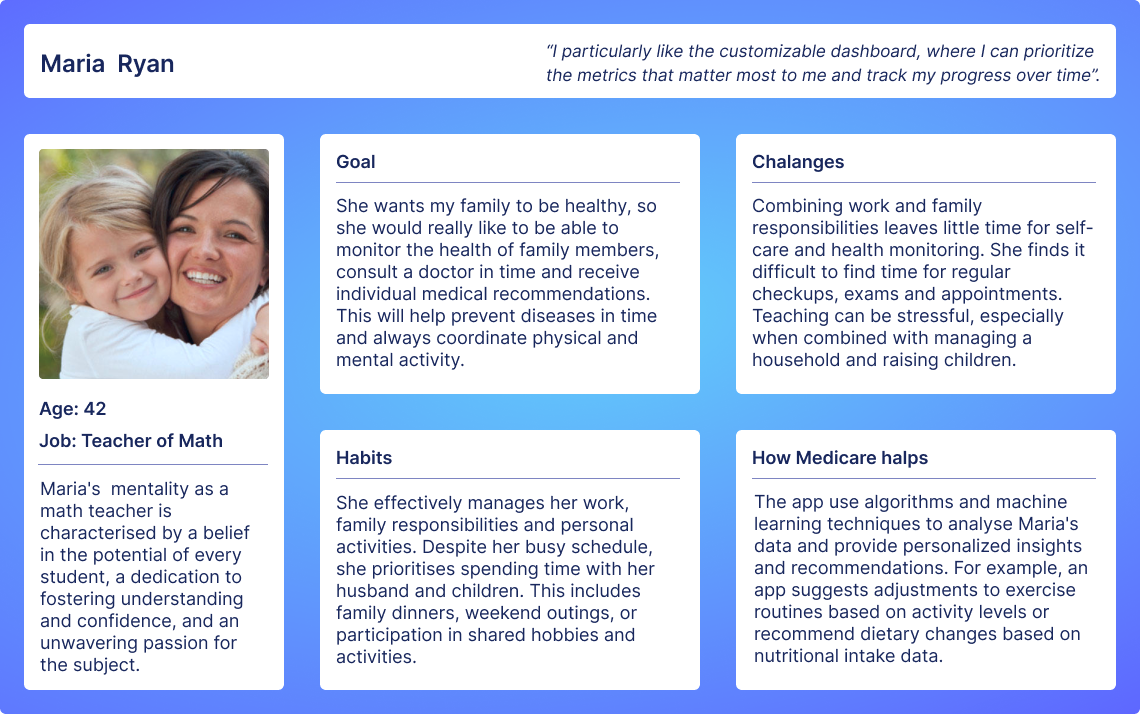
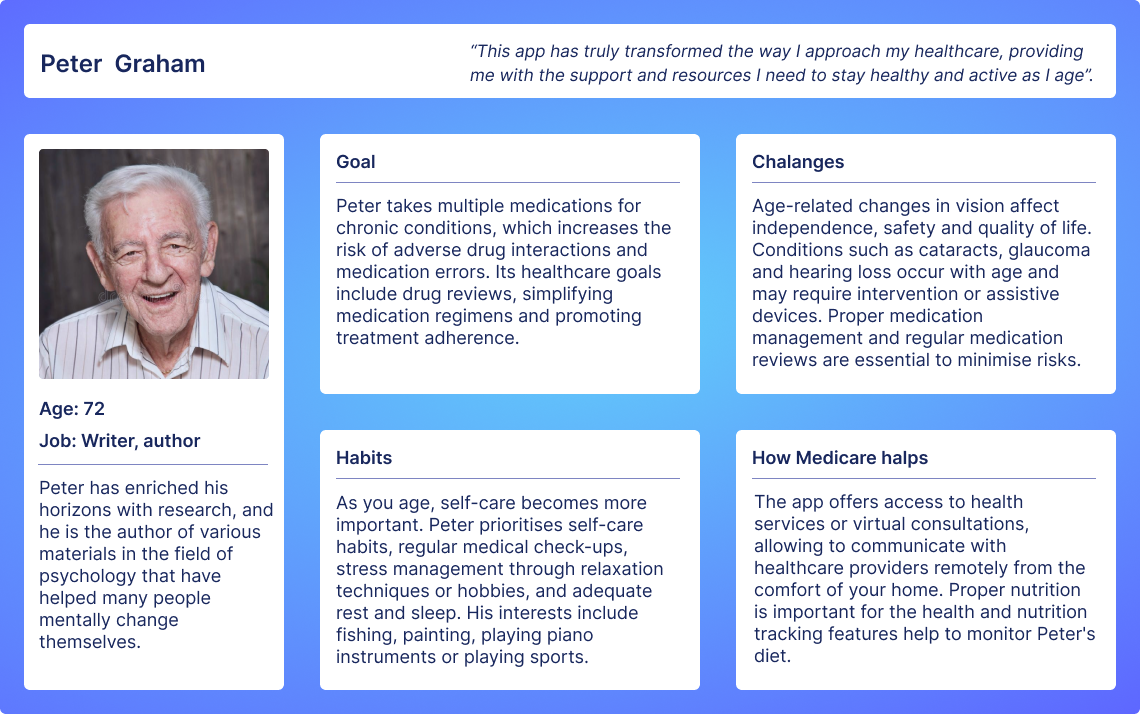
Visualisation
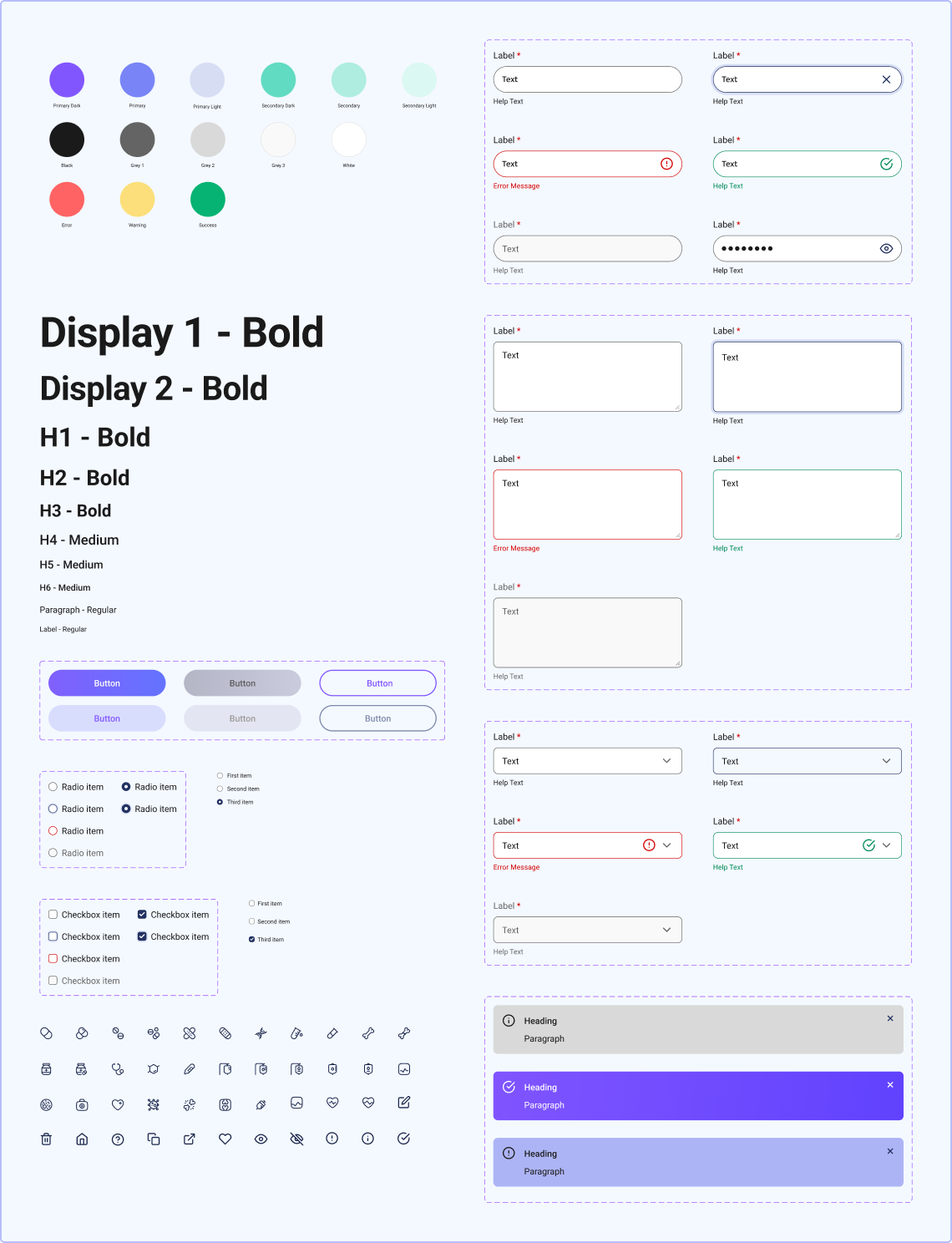
Information architecture
